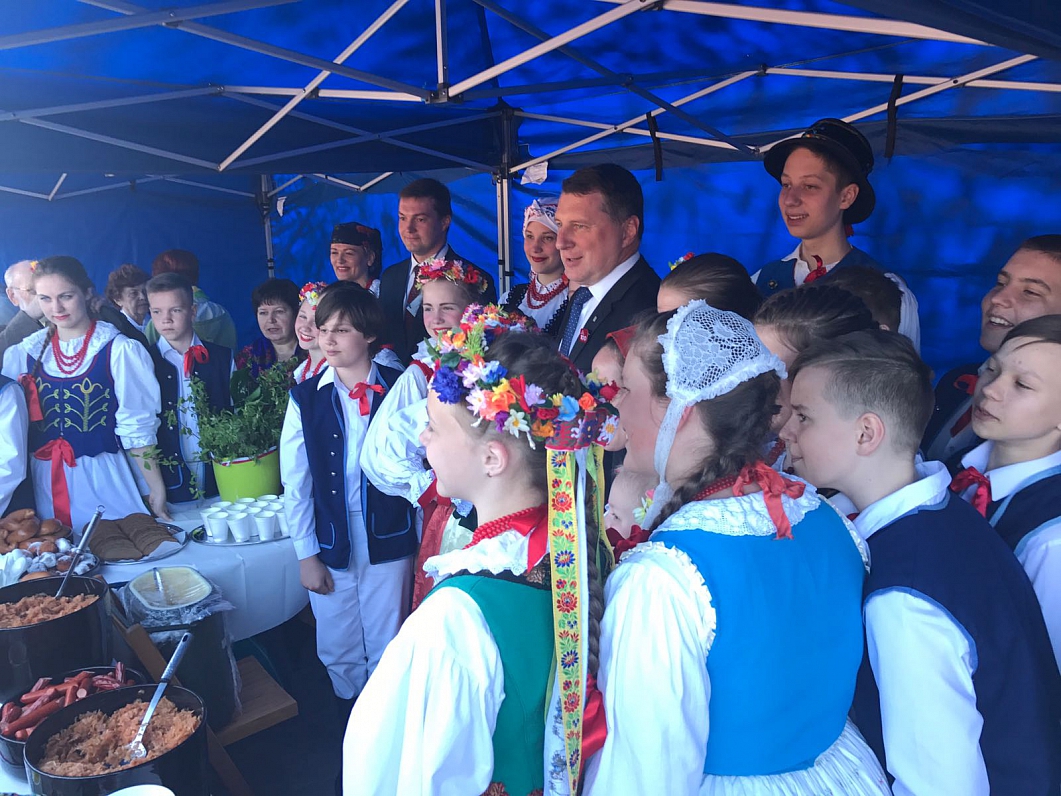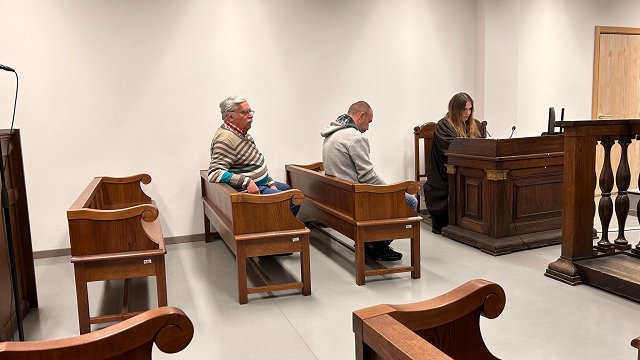"It is of utmost importance that parents register their children as Latvian citizens. It is very easy to do," he said, calling for non-citizens to naturalize.
He said that Latvia should cease granting non-citizens' status to children born in the country.
The president stressed that ethnic minorities helped shape what is now independent Latvia, because "we were united in a common battle for the values important to us - for Latvia and for freedom."
He went on to praise the diverse cultural heritage in largely Russian-speaking Daugavpils.
"Daugavpils symbolizes our ability to be united in our differences and help build Latvia's future whilst preserving our own traditions, language and culture," he said.
Vējonis also mentioned the Daugavpils' Church Hill, standing upon which are four churches of different confessions, as an example unity despite differences.
"For centuries, people of many different ethnicities have been living in Latvia's territory. Between them there has always been the tolerance witnessed in the Church Hill and laid in the foundations of our independence," he said.
The special Latgale Centenary Congress took place May 5-6, marking 100 years since Latgale chose to join Kurzeme and Vidzeme, helping pave Latvia's way to independence.
As Latvia reinstated its independence in 1990, the interim parliament voted to grant citizenship to Latvians that were citizens during the inter-war period, and their offspring.
Consequently, a third of Latvian residents who did not fit the criteria and were largely Soviet-era immigrants became non-citizens, who don't have the right to vote and hold certain public offices.
There were about 247,000 non-citizens (about 12% of the population) in Latvia according to July 2016 data reported by the Foreign Ministry.



























